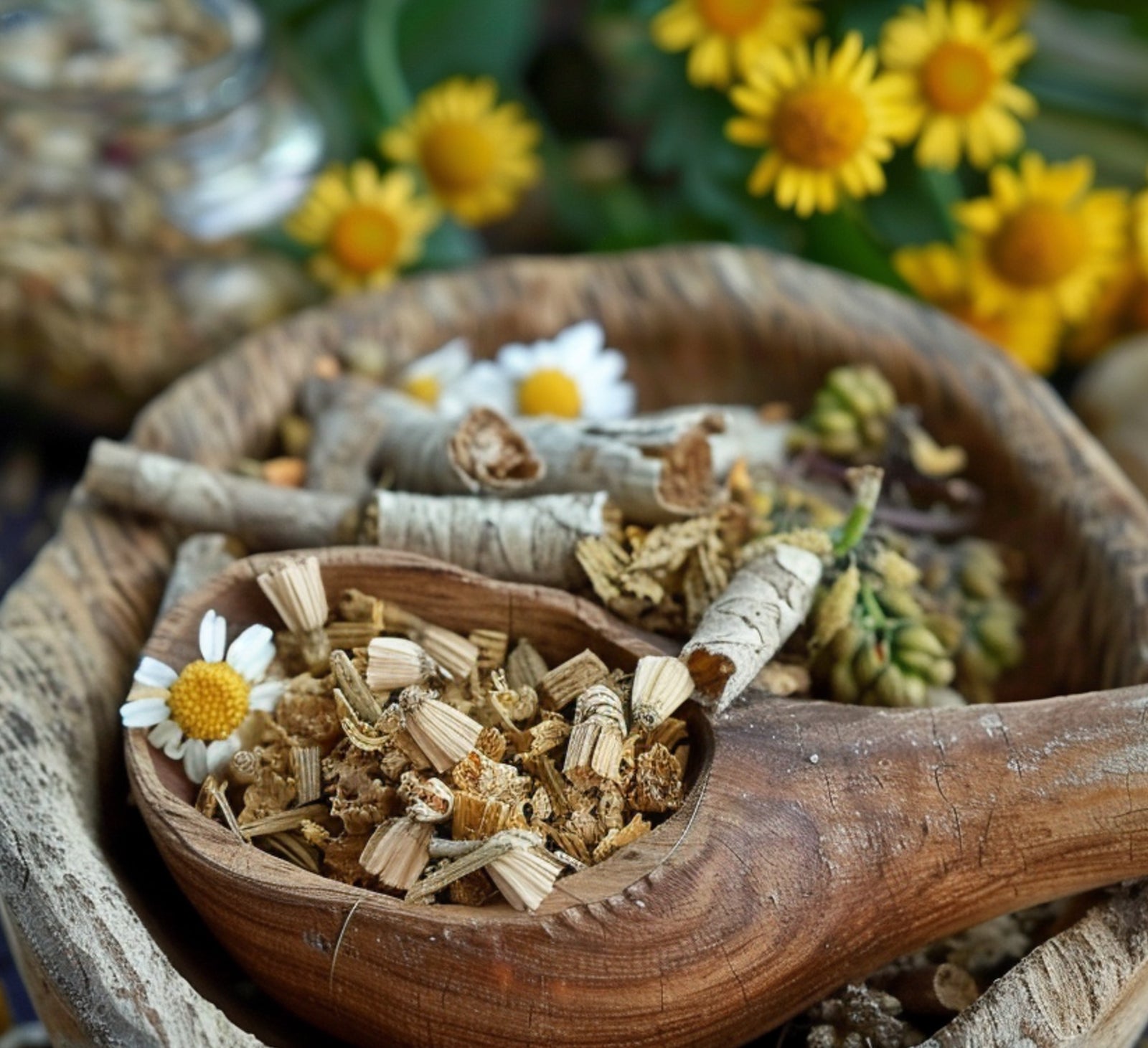What herbs will help with intimate infections?

Intimate problems are very common, especially in women, but not only - intimate infections in men are an equally serious condition. What's more, infections appear at any age, including children. They cause many unpleasant symptoms, and if left untreated, they increase the risk of more serious health problems, which is why all intimate infections require consultation with a specialist to prevent their further spread and negative consequences.
Herbal remedies are often used in the treatment of intimate infections. Many people choose them primarily because they are natural, relatively cheap, and the properties of many plants have been known for thousands of years. Some herbs can actually be helpful in fighting intimate infections.
Chamomile (Matricaria chamomilla L.) is one of the most commonly used medicinal plants. It contains many bioactive substances, including Alpha-bisabolol, Luteolin, Quercetin, Azelon, Apigenin. These compounds have anti-inflammatory and antimicrobial properties. Chamomile also has a soothing effect and supports the regeneration of the skin and mucous membranes. Chamomile extracts are present in the composition of many intimate hygiene products and herbal mixtures intended for preparing home-made infusions and teas.
Oak bark (Quercus robur L.) is a unique plant helpful in the treatment of intimate problems. Oak bark contains catechins and flavonoids with anti-inflammatory effects and soothing itching, which often occurs during infections. Moreover, oak bark extracts can inhibit the multiplication of some species of fungi and bacteria. In the case of mild infections and inflammations in the intimate areas, sitz baths and baths prepared from dried oak bark may be helpful.
Yarrow (Achillea millefolium L.) can be successfully used for vaginal discharge, vaginal and vulvar inflammations. Both the flowers and the yarrow herb have healing properties. They are characterized by a high content of chamazulene, a health-promoting substance with antibacterial and antifungal effects. Yarrow is used in the form of baths or sitz baths. So far, no side effects or contraindications to its use have been found, however, as with other herbs, consultation with a doctor is necessary, especially in the case of intimate infections during pregnancy.
Sage (Salvia officinalis) is characterized by a very rich composition of bioactive substances, thanks to which it has anti-inflammatory, antioxidant, antibacterial and antifungal effects.
Research shows that the use of vaginal suppositories containing sage extracts, either alone or in combination with clotrimazole treatment, can be an effective and safe way to treat vaginal yeast infections.
The listed medicinal plants are the most popular and well-studied plants supporting the treatment of infections and included in many products intended for intimate care. Remember not to use herbal treatments on your own and consult any disturbing symptoms with a doctor. If intimate infections are severe, natural methods may not be enough.






